June 17, 2025 | 20:56 GMT +7
June 17, 2025 | 20:56 GMT +7
Hotline: 0913.378.918
June 17, 2025 | 20:56 GMT +7
Hotline: 0913.378.918
In early November, during the peak coffee season, traders, agents, and companies in Huong Hoa district offered prices ranging from 10 to 10.5 million VND/ton for fresh coffee fruit. This brought hope and excitement among coffee growers in Huong Phung commune, who anticipated increased income after years of enduring losses due to low coffee prices. Many hoped to use the earnings to repay debts and reinvest in their coffee gardens.
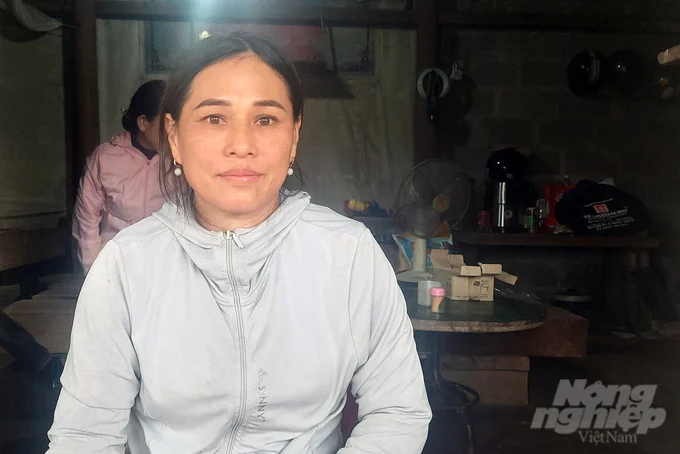
Ms. Nguyen Thi Lan and many households in Huong Phung commune said they did not bother harvesting because the price of coffee was too low. Photo: Vo Dung.
However, the optimism was short-lived, as purchasing prices started to decline. Despite the abundance of ripe coffee during the main season, traders, agents, and factories announced a floor purchase price as low as 7 million VND/ton, with the risk of dropping further to 6 million VND/ton.
Ms. Nguyen Thi Lan, residing in Cop village (Huong Phung commune), manages nearly 3 hectares of Arabica coffee. Calculating the annual care expenses, including fertilizer, foliar fertilizer, pest control (amounting to about 140 million VND), and labor costs for grass cutting and branch pruning, Ms. Lan initially looked forward to a profitable year. With an estimated output of about 40 tons, her family expected to earn over 400 million VND. However, with the decreased purchasing price, coffee growers like Ms. Lan faced the dilemma of earning less than 5 million VND/ton of fresh coffee after deducting labor costs and not accounting for initial investments.
By mid-November, disheartened by the declining prices, Ms. Lan, along with many other coffee growers, allowed the fruit to fall, choosing not to harvest and further contributing to the challenges posed by the persistently low coffee prices. With this purchasing price, minus the cost of hiring workers to pick, coffee growers only earn less than 5 million VND/ton of fresh coffee, not deducting investment costs.
“Coffee beans scatter across the trees as the prices plummet, discouraging farmers from harvesting. ‘With purchasing prices like this, coffee growers are losing money and don’t know when they can get back on their feet,’ sighed Ms. Lan.
Seeking solutions, coffee growers in Huong Phung commune turned to information channels to gauge market prices. They believed that, at this time, the purchasing price of fresh coffee should range from 13 to 14 million VND/ton. Faced with mounting losses, more than 50 households in Cop, Phung Lam, and Choa villages of Huong Phung commune donned raincoats. They approached the People’s Committee of Huong Hoa district in mid-November, seeking assistance. Their collective efforts yielded a modest coffee purchase price increase, raising it to 9 - 9.5 million VND/ton.
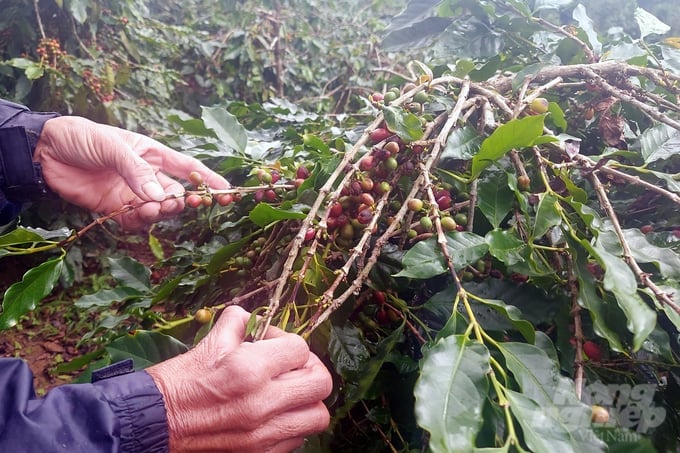
Ripe coffee berries dry on the branches and fall to the roots because people do not harvest them because they are cheap. Photo: Vo Dung.
Despite this improvement, coffee growers in Huong Phung commune argue that at this purchasing price, they are still operating at a loss. If this situation persists, there is a looming threat that farmers will lack the financial means to reinvest and cover their living expenses. In the long term, the sustainability of replanted coffee gardens is jeopardized, with the risk of abandonment or conversion to other crops.
The volatile nature of coffee prices poses an ongoing challenge. While some businesses increase purchasing prices by 1 million VND/ton, farmers cannot sell due to previous obligations. Ms. Nguyen Thi Lan in Cop village, Huong Phung commune, explained that people usually harvest ripe fruit during the main season to sell. However, with the purchasing prices from agents remaining too low, many households have opted not to harvest, leading to fallen trees and withered fruit on the branches."
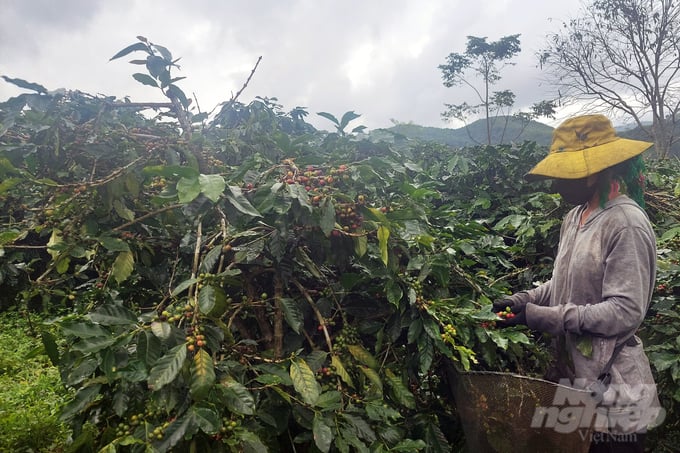
Since November 22, when coffee prices increased, people continued to harvest. Photo: Vo Dung.
Despite a local business offering to purchase coffee at a rate of 1 million VND/ton higher than the ceiling price, Ms. Lan found herself unable to sell. “I borrowed fertilizer on deferred payment from a purchasing agent in the area, so I had to sell to them even though the price was lower. A contract does not bind this connection but must maintain credibility for future borrowing. However, if we keep trusting, we end up losing money. The more we sell, the more we lose,” expressed Ms. Lan with bitterness.
Ms. Nguyen Thi Thao, the owner of a coffee purchasing and processing facility in Cop village, Huong Phung commune, shared her perspective. At the start of the season, her business purchased coffee at a rate of 6-7 million VND/ton, higher than the market price, to provide growers with enough time to harvest and maintain their coffee gardens. However, excessive rainfall during the main harvest increased humidity and impurities in the coffee, compelling businesses to lower purchasing prices to ensure processing without incurring losses.
“This year, coffee exports face unfavorable conditions, with low prices and processing enterprises mainly selling in bulk for domestic consumption, resulting in numerous challenges. If the rainy weather persists, I might have to cease processing because buying at 7.5 million VND/ton for processing also leads to losses,” explained Ms. Thao.
Addressing the situation, Mr. Hoang Dinh Binh, Head of the Department of Agriculture and Rural Development of Huong Hoa district, clarified that after receiving reports, the People's Committee of Huong Hoa district engaged with businesses. The low coffee prices were attributed to the rainy weather, high humidity in coffee, green fruit, and a prevalence of impurities, leading to a low percentage of parchment coffee. Businesses aiming for profit find it challenging to buy at the higher prices desired by the people.
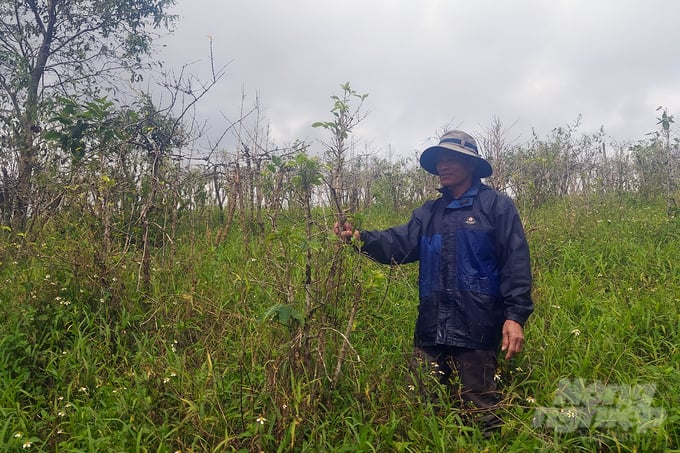
Without a sustainable solution, the Arabic coffee gardens in Huong Phung, which are famous for their delicious quality, will be abandoned or converted to other crops. Photo: Vo Dung.
“Before the harvest, the Department advised the District People’s Committee to establish a quality inspection team for coffee purchasing and processing. The team will check, and if a business is found to be purchasing green coffee, it will make a record. Businesses also strongly agree not to purchase green coffee mixed with many impurities to gradually improve local coffee quality,” Mr. Binh said.
Regarding long-term solutions, according to Mr. Binh, people need to focus on making clean coffee, improving coffee quality, and producing specialty coffee and organic coffee. Coffee replanting needs to continue, and cooperative groups should be established to purchase and process clean coffee.
Huong Hoa is the coffee capital of Quang Tri province with about 4 thousand hectares, mainly Arabica coffee. Huong Phung commune alone has 2 thousand hectares, of which about 1.3 thousand hectares are in business. In previous years, low coffee prices caused many households to go bankrupt, and many coffee areas were converted to other crops. Low coffee prices affect about 4 thousand households in Huong Phung commune.
Translated by Quynh Chi
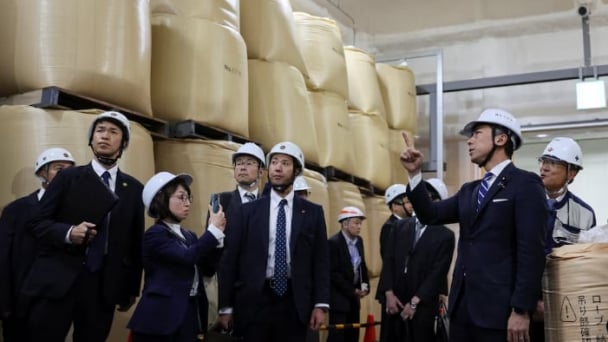
(VAN) Japan will release another 200,000 metric tons of rice from its emergency stockpile to tackle a doubling of prices since last year, Agriculture Minister Shinjiro Koizumi said on Tuesday.

(VAN) Coffee prices on June 13 declined sharply for Arabica. Domestic coffee market in Vietnam dropped by VND 2,000, trading at VND 111,500 – 112,300/kg.

(VAN) Coffee prices on June 12, 2025, continued to fall. Domestically, coffee prices decreased by another VND 2,000, trading at VND 111,500 – 112,300/kg.

(VAN) Coffee prices on June 11, 2025, fell sharply across global markets. Domestic coffee market dropped by VND 700, to the range of VND 113,500 – 114,300/kg.
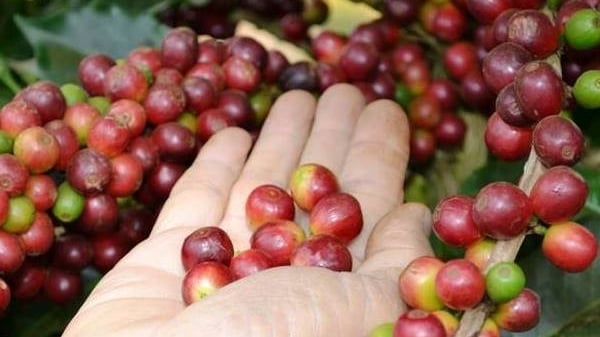
(VAN) Coffee prices on June 10 2025, rose sharply worldwide for Robusta. Domestic coffee market increased by VND 800, reaching VND 114,200 – 114,800/kg.
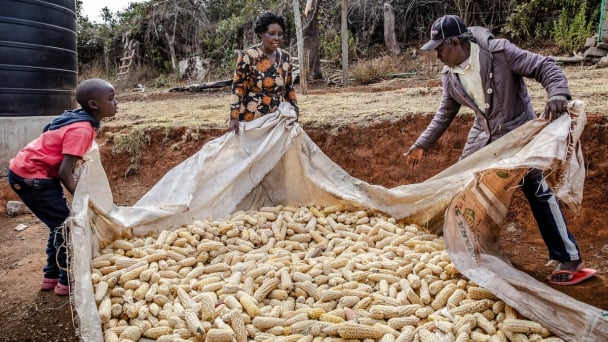
(VAN) New FAO forecasts point to record global cereal output with a partial rebound in stocks and trade.
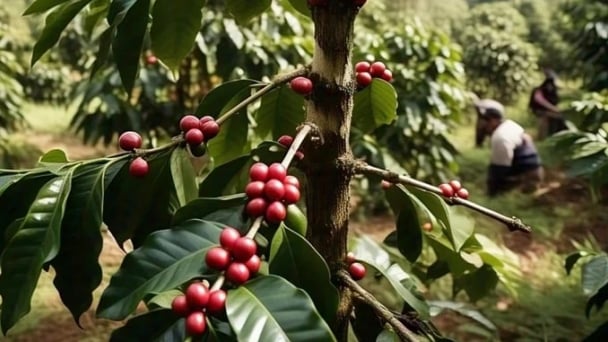
(VAN) Coffee prices on June 9, 2025, in domestic and global markets remain unchanged. Domestic coffee market is currently trading at VND 113,500 – 114,000/kg.